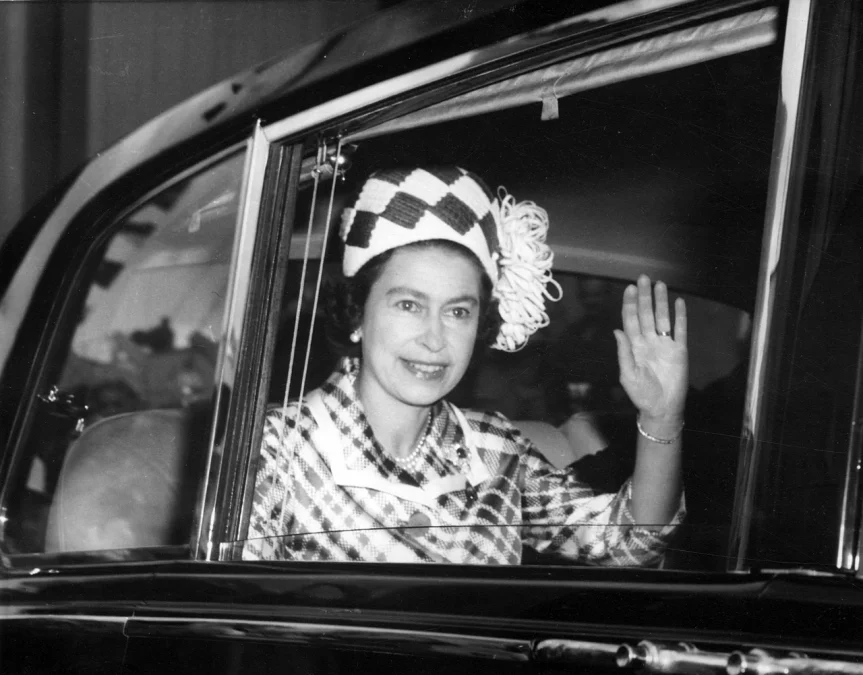
Love? Faith?
September 7, 2022
Let Love Be Genuine
September 17, 2022Legacy, monarchy, and the common good – a personal reflection
At 6.30pm on Thursday 8th September 2022 the following announcement was made from Buckingham Palace, ‘The Queen died peacefully at Balmoral this afternoon’. We were given advance notice of her need of medical assistance and saw the speedy arrival of her children in Scotland.
We will remember where we were and what we were doing when we heard that news. Why? It is a turning point for our life together – a moment of systemic change for our social, cultural, political, and religious life.
Photographs, events, the agreed arrangements for the funeral, and the first of many attempts to describe the person: our memories; her life and legacy; have begun as we attempt to capture Elizabeth.
I worked as a Canon of St Georges Chapel, Windsor Castle, which gave me privileged opportunities to connect with the late Queen. Privacy and reticence are important when people take us into our trust. Often, how we make judgements and what we say of situations and others reveals much of our own limitations and disconnectedness. Time, attentiveness, care, and some humility shape wisdom. Turning the volume up through the disposable platform of social media may be entertaining, but it can also be unhelpful and misleading.
I offer this tribute by way of gratitude to her within the context of the shifts and complexities of these present times.
Queen Elizabeth will surely demonstrate the ability to turn the hearts of the most hardened of Republicans into some sympathy and support for monarchy. She was one of the most remarkable individuals I have ever met. She embodied a rare combination of shrewdness and dedication. She was hard-working, adaptable, and responsive to change. Her memory was astonishing, along with her attention to detail, disarming wit and humour.
This was a woman who cared very much for those who lived and worked for her. At Windsor this included her grooms, the housekeepers, the gardeners, and even retired staff. She was a prolific letter writer; her pen captured clarity of expression and generous care.
A person who kept confidences, and whose humility (which so often jarred with those who worked alongside her) were marks of her integrity and professionalism – both of which are becoming rarer in public life.
Most memorable were the moments when the late Queen broke into her wide and generous smile that constantly surprised and enlarged any gathering. It lit up the moment. There seemed to be no ‘side’ to her, and a certain innocence – perhaps nurtured in a kindness of heart and generosity of spirit – sought always to see the best in an individual or a situation. Here we all sensed that redeeming characteristic of graciousness and goodness. She cared for all. She wanted all people from across the varied and complex parts of this country to prosper.
Over these 70 years there was much to trigger both frustration and pain, but somehow, they never seemed to have the final word. Her life was a living witness that spoke into the better angels of our nature. The quiet heroism of her service, into her 90s, gave us all a glimpse of the dignity of dedication to the common good. As Jonathan Sacks has commented, ‘this good is so much bigger than self-interest’.
We know that for the Queen nothing mattered more than the religious and spiritual heart of the ceremony which anointed and crowned her as Sovereign. She was devout and it is clear from all that followed, committed to leading by example. Helped by a strong personal constitution and an inner calmness, we will never really know what sustained her in some of the darker and more complicated times of her reign. Despite the trappings and luxuries of her life, none of us should underestimate the relentless complexity of this role and job. Indeed, it is, these days, a harder job than ever. Her faith sustained her. It was deep. It was unfussy. It was disciplined. It was lived.
Modesty and a commitment to mostly keeping quiet might be two elements that account for the quality of her presence. In a world where personal development, ‘being oneself’ in the most vivid way possible is the highest human good, it may be that her reign represented a different approach to human fulfilment.
When she spoke, there was an economy of words and brilliance of naming the moment. In the darkest days of the Coronavirus pandemic, the late Queen spoke of the light that no darkness can extinguish. She reminded us of a deep truth about ourselves – we are a people of hope who care for one other.
Her cautiousness, the ability to take a longer view; being ready to respond to the mood of the times and casting a net of goodwill in the quality of her work and relationships, might be some of the elements of her legacy that we reflect upon in this period of public mourning. We need to name what has passed and what we hope for.
We properly honour and respect her life and legacy, but we do so within the context of an ever shifting and complex world. We do so within the context of an awareness of the dangers of idealising people. When you inhabit a big world, you learn charity and humility. Perhaps this sense of life as gift gave her a generous vision of the world as a good and beautiful and hope-filled place – even if it is also a tragic one – because it is God’s. Perhaps it is not naïve to hope that in our discourse we may have the spiritual gift of seeing with love and insight and wherever possible finding common ground.
As we come to terms with the loss of this great public servant questions about this common ground may well need to be reflected upon. We do so here within an awareness of the complexity of the role of both religion and church in society.
We know that there are many who will continue to argue that monarchy and democracy are inevitably going to be in opposition. We live within a constitution which aims to distribute and exercise power for the common good.
Continuity is one thing, political and social inflexibility which resists adaptability for the common good is quite another. There can be synergy between democracy and monarchy: commitment to a core set of values that protects the vulnerable, nurtures fairness, inclusion, and justice. These are questions about what kind of world we want to build. This is ever needed given the UK’s relative isolation in Europe, our economic crisis, and the real threat of survival as a planet, given climate change and seemingly intractable conflicts and war across the globe.
The Church of England as the established church is visible as part of the fabric of the succession. Both Archbishops formed part of the proclamation as Privy Councillors. Its role and function cannot be taken for granted. The world will watch the State Funeral on Monday, 19 September with respect and with deep grief. It may be that these days have stirred our spiritual selves to ask some fundamental questions about life and its meaning – and indeed how we might prepare for death whenever it visits our door. But what does it mean to be ‘Modern Church’ when over the last 70 years, religion has become weaker, contested and for so many simply irrelevant. What shared ground for the common good does the Church of England represent? How does the Church deal with its anxiety and grief about what has gone? How authentic are its voices and theological wisdom as we seek to negotiate these complicated post-pandemic months? Some reflection on its identity and vocation might seek to recommit to a common ground for our shared human flourishing.
Queen Elizabeth II leaves a remarkable legacy, through a life well-lived. We name and honour it in these shifting and uncertain waters.
James Woodward is Principal of Sarum College and a Visiting Professor in the University of Winchester. He is a practical theologian with a particular interest in ageing, death and human flourishing. Further information can be found at www.jameswoodward.info or on twitter @R_C_Woodward





2 Comments
Thank you. James. You have said so much that we are all thinking, and giving us so much more to reflect on and remember.
I’ve read and reread this several times James since you posted it and I’ve shared it.
Even the hardened republicans I know have commended what you wrote and recognise the truths contained. I just want somewhat belatedly to thank you for this personal reflection.
Although I was sorry you had to leave Temple Balsall and somewhat selfishly myself a bit cross with the Queen at the time she poached you, now I’m so glad she had you in her service. She deserved you and I’m simply glad you were there for her to offer your support as she in turn served the people she’d promised she would.